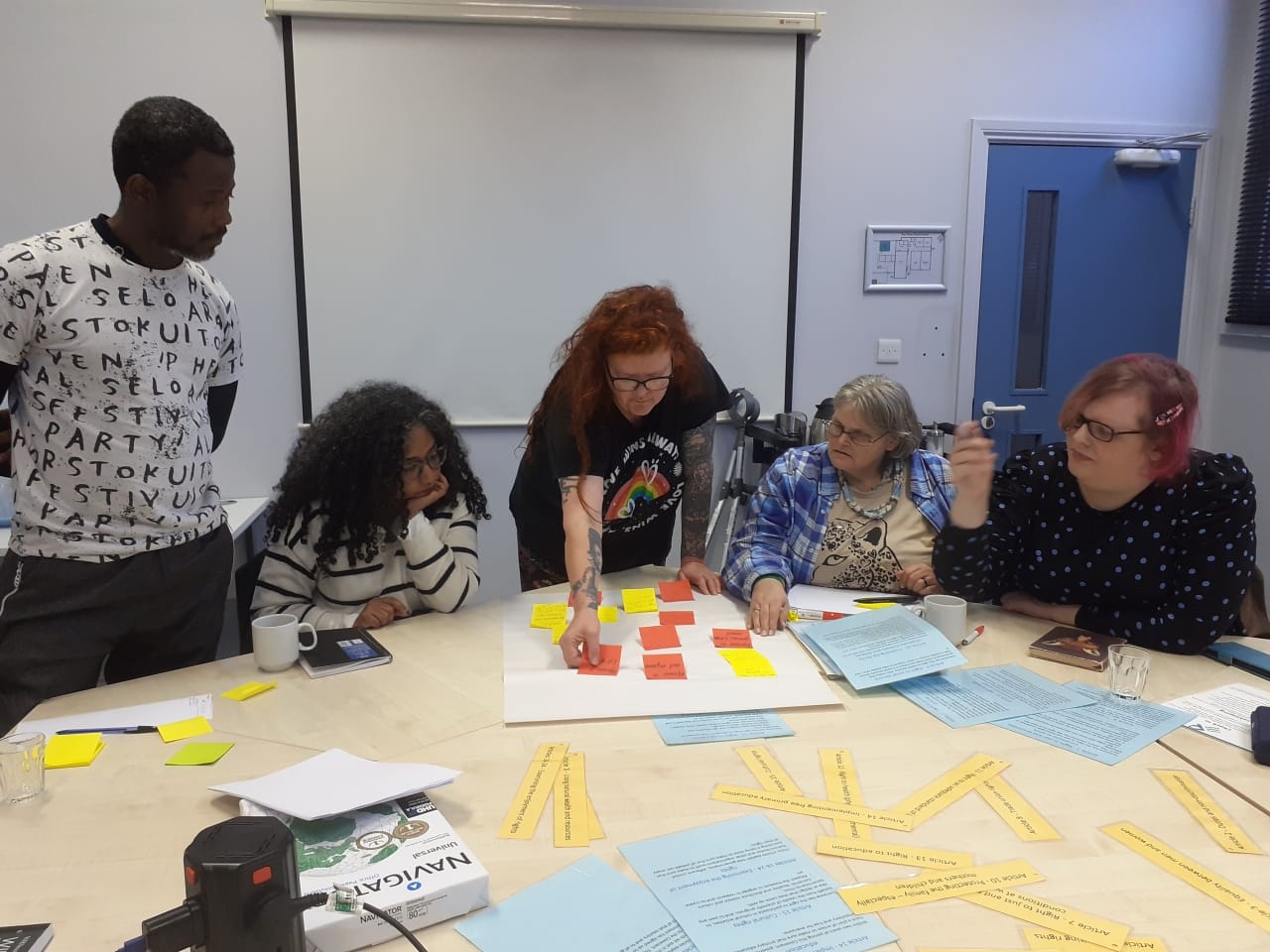Getting to GRIPPs with how BIG this feels
Written by Julie Easley, from Thriving Women
One member of GRIPP’s “ICESCR Submission Team” reflects on what it is like to “step out of her lane” and engage with the UN.
When I first became involved with Thrive Teesside I knew very little of their work outside of the Thriving Women poetry workshops I facilitated on behalf of Tees Women Poets.
Thriving Women were created to give women in Teesside with the lived experience of poverty and social exclusion a platform. A safe and supportive space to write about the realities of living without a voice with the ultimate aim of reaching those who might listen and involve them in decisions that impact them more than anyone else in the UK today.
That was my role, to plan and deliver workshops that responded to the work Thrive was doing in the background. As a group, we wrote statements for GRIPP’s first report to the ICESCR 7th Review of the UK by the United Nations in 2023, and it was something bigger than us, outside of us.
That changed in 2024, when Thrive invited us to become part of the solutions to tackling poverty and all its intersections. A small posse of Thriving Women joined Thrive in London (Diana, Sarah & myself) to meet with members of GRIPP and Poverty2Solutions. It was humbling to meet so many like-minded people who care and who are willing to go the extra mile to advocate for those who are underrepresented. It also revealed how big the challenge is to create change particularly around long repeated narratives of ‘lifestyle choices,’ and ‘blame.’
Next Sarah and I joined Tracey from Thrive at a gathering in York on the 11th of November. This was to be involved in GRIPP’s 2nd submission to the United Nations ICESCR 7th Review of the UK and to give our voices of lived experience to the document. You would think, as a writer, I would have the words to describe how massive this is to someone like me, but I don’t, except to say it feels like everything in my life has been leading to this. Being valued, being seen is not the usual experience of the underrepresented and it takes some getting used to!
So we gathered, a small but vital team, in a boiling hot room in the beautiful city of York on an unusually warm November day – representing Amnesty UK, ATD Fourth World UK, Bevan Foundation, Intisaar, Just Fair, Poverty Truth Community, RAPAR, Thrive Teesside and University of Essex Human Rights Centre – what a team! We then spent the best part of the day discussing three of the human rights within the ICESCR, and how we want to respond to the List of Issues raised by the UN in the first stage of the Review process. More importantly, how to respond to the dismissive attitude from our government about the reality of living in poverty in the UK.

This is huge, I mean, huge. I am a working-class single mam on benefits who has dared to say I am going to work as a poet, a workshop leader and a social commentator. This is not something I’m supposed to do, this is not staying in my lane. And this bit of reflection is not how I meant it to be, I was going to tell you what we discussed, what we agreed on, what the next plan of action is but these words won’t stop. I have to express how BIG this is – lived experience is never listened to, lived experience is not valued as evidence, lived experience is grouped into numbers and spoken of as something to be ashamed of. We are taught to be grateful, we learn to live with fear and the stigma of ‘handouts,’ we experience trauma at the hands of the ‘support system,’ and most of all, we learn to be silent.
So, this little gathering, in a stuffy room in York, at the invitation of Thrive Teesside is the first step towards being heard. It is being able to say, ‘this is the impact of my governments decisions on my life, this is the impact on my family life and our mental health, this is the impact of being controlled every day of my life because my socio-economic status makes me a lesser human being.’
I try not to think about the outcome, I have no expectations of change – the battering we have endured over the last 14 years has taken its toll and the world seems to be going backwards in terms of inclusion and rights, but the opportunity to be part of something bigger than me with even the tiniest possibility of reform is a start.
It is a hope ignited.
